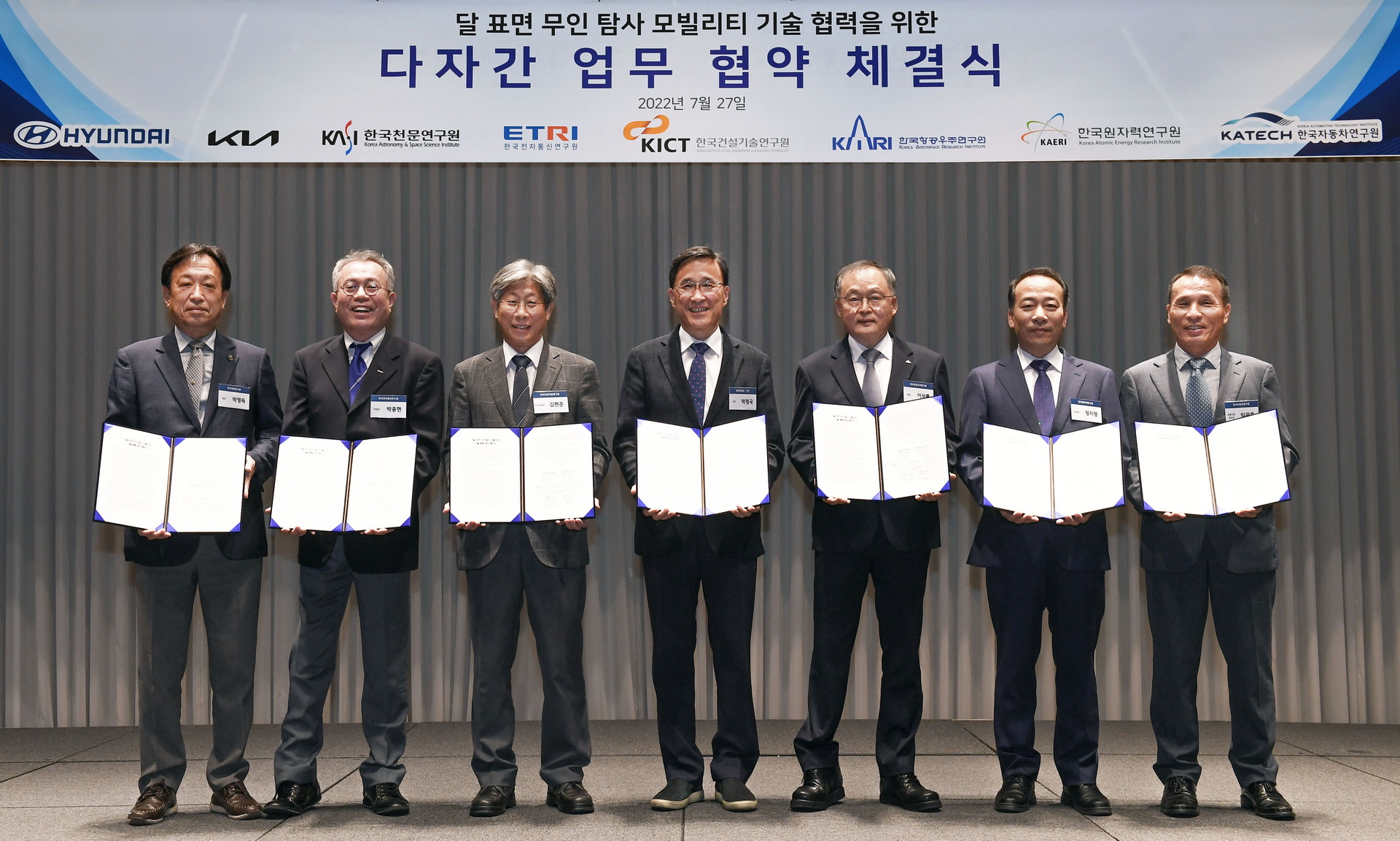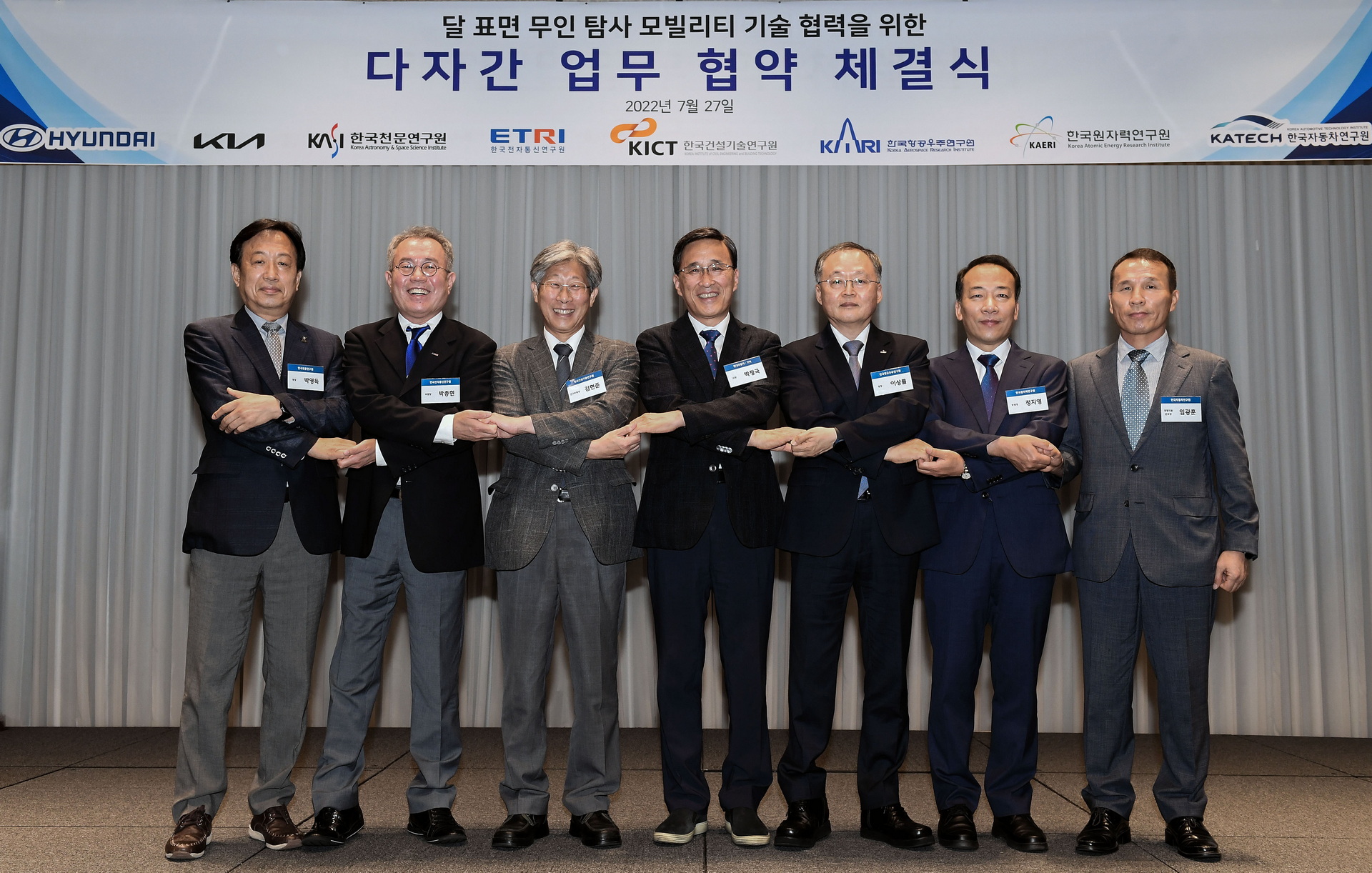Hyundai and Kia today announced that they will be collaborating with a variety of research institutes to create a lunar rover.
Following the successful launch in June of a rocket designed and built by South Korea, the automakers have announced their intention to help the nation develop mobility solutions to explore the surface of the Moon.
“We have taken the first step towards transforming our vision for robotics and the concept of Metamobility into reality,” said Yong Wha Kim, Executive Vice President, and Head of R&D Planning & Coordination Center of Hyundai Motor and Kia. “We will expand the scope of human movement experience beyond traditional means of transport and beyond the bounds of Earth to further contribute to the progress of humankind and help create a better future.”
Read Also: GM’s NASA Lunar Rover Built With Lockheed Martin Could Use Ultium Batteries
The challenges will be many for the brands since the Moon has no air, experiences extreme temperatures, is dotted by craters, and is covered in thin dust composed of sharp abrasive particles. It is precisely because of that, though, that the companies call it the “ultimate proving ground” that will deliver invaluable lessons for them in the development of smart, sustainable mobility solutions down here on Earth.
Hyundai and Kia expect to start collaborating with their six external partners on the development of the lunar rover as early as August. To begin with, a consultative body will define the concept and establish the core technologies that will have to be developed for this project. Together, they will develop strategies and implementation measure to operate on the Moon, and the automakers will be looked toward to consult on matters of mobility.
The brands have already formed an internal consultative body with key personnel. Resources will come from their Robotics Lab, and they will look at hardware and software for the rover, as well as “space environment response technology” and special equipment for conducting lunar missions.
Hyundai and Kia will work together with six research partners: Korea Atomic Energy Research Institute (KAERI), Korea Aerospace Research Institute (KARI), Korea Astronomy and Space Science Institute (KASI), Korea Automotive Technology Institute (KATECH), Korea Institute of Civil Engineering and Building Technology (KICT), and Electronics and Telecommunications Research Institute (ETRI).






